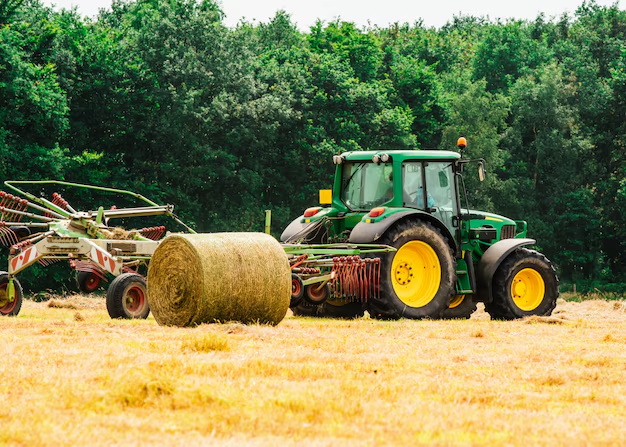Fuel costs are one of the biggest expenses in modern farming, significantly impacting overall operational costs. With rising fuel prices and increasing environmental concerns, farmers must adopt fuel-efficient strategies to maximize productivity while minimizing costs. Investing in fuel-efficient farm equipment and implementing smart usage practices can lead to significant savings and a more sustainable farming operation.
Benefits of Fuel-Efficient Farm Equipment
Using fuel-efficient machinery offers multiple advantages beyond just cost savings. These include:
- Lower Fuel Expenses – Reduced fuel consumption directly cuts down operating costs.
- Longer Equipment Lifespan – Efficient machinery experiences less wear and tear, reducing maintenance and replacement costs.
- Environmental Benefits – Lower fuel use means reduced carbon emissions, contributing to sustainable farming practices.
- Improved Productivity – Advanced fuel-efficient equipment often comes with better technology and automation, leading to higher efficiency.
Choosing Fuel-Efficient Farm Equipment
Selecting the right machinery is crucial for fuel efficiency. Here are key factors to consider when purchasing farm equipment:
- Engine Efficiency – Look for tractors, harvesters, and other machinery with energy-efficient engines designed to optimize fuel use. Newer models often have advanced fuel injection systems that improve efficiency.
- Size and Power Matching – Use equipment that matches the size and needs of the farm. Overpowered machines consume excessive fuel, while underpowered ones strain the engine, reducing efficiency.
- Hybrid and Electric Options – Consider hybrid or electric-powered farm machinery, which can significantly reduce fuel consumption. These options are becoming more available as technology advances.
- Precision Agriculture Technology – Equipment with GPS, auto-steering, and variable rate technology (VRT) ensures precise operations, reducing fuel waste.
- Aerodynamics and Design – Machinery with streamlined designs reduces resistance and improves fuel economy, especially for tractors and transport vehicles.
Fuel-Saving Strategies for Farm Operations
Apart from investing in fuel-efficient equipment, farmers can adopt several practices to further reduce fuel consumption:
1. Proper Equipment Maintenance
Regular maintenance improves engine efficiency and prevents excessive fuel consumption. Key maintenance tasks include:
- Keeping air filters clean to ensure proper airflow.
- Checking and replacing fuel filters to prevent clogs.
- Ensuring proper tire inflation to reduce rolling resistance.
- Regularly servicing engines to maintain peak performance.
2. Optimizing Field Operations
Smart planning and efficient field management help reduce unnecessary fuel use.
- Reduce Unnecessary Trips – Plan fieldwork to minimize travel distances and avoid overlapping passes.
- Use the Right Implements – Match tools and attachments to the task to prevent excess fuel consumption.
- Adopt No-Till or Reduced-Tillage Practices – Minimizing tillage reduces fuel use and improves soil health.
3. Implementing Precision Farming
Technology-driven farming techniques help optimize fuel usage.
- GPS and Auto-Steering Systems – Reduces overlaps and ensures efficient fuel use.
- Variable Rate Technology (VRT) – Optimizes input applications (fertilizers, seeds, pesticides) based on field needs, reducing waste and fuel use.
- Telematics and Monitoring Systems – Tracks fuel consumption and machinery performance, helping farmers adjust usage for better efficiency.
4. Using Alternative Fuels and Lubricants
Exploring alternative fuel sources can lead to cost savings and sustainability.
- Biodiesel and Ethanol – Renewable fuels that reduce dependence on diesel and gasoline.
- Synthetic Lubricants – Reduce engine friction, improving efficiency and lowering fuel consumption.
Reducing operational costs through fuel-efficient farm equipment and smart farming practices is essential for sustainable agriculture. By investing in modern, fuel-efficient machinery, maintaining equipment properly, and adopting precision farming techniques, farmers can cut fuel expenses while increasing productivity. These strategies not only enhance profitability but also contribute to environmental conservation and long-term farm sustainability.
Join 'Farmers Mag' WhatsApp Channel
Get the latest Farming news and tips delivered straight to your WhatsApp
CLICK HERE TO JOIN






